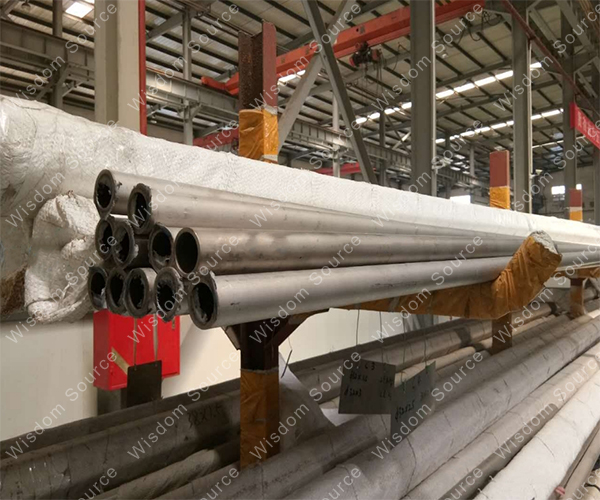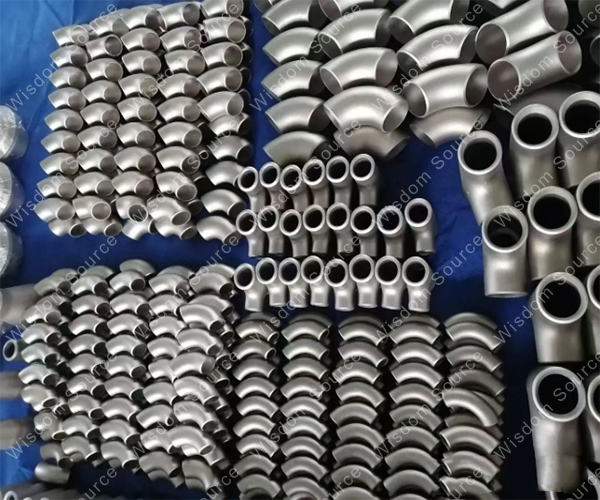Processing Of Titanium Pipe Fittings, Treatment Of Excessive Hydrogen Content And Characteristic Points
Processing Of Titanium Pipe Fittings, Treatment Of Excessive Hydrogen Content And Characteristic Points
In the processing of titanium pipe fittings, hydrogen content control is essential. When the hydrogen content in titanium pipe fittings is too high, its impact toughness and notch tensile strength will decrease due to the increase in material brittleness. Generally, in order to ensure the performance of titanium pipe fittings, it is stipulated that the hydrogen content should not be higher than 0.015%.
In order to reduce the absorption of hydrogen, the titanium pipe fittings need to be carefully cleaned before heat treatment to remove fingerprints, wear marks, grease and other residues. At the same time, make sure that there is no water vapor in the heat treatment furnace. If the hydrogen content of the titanium pipe fittings is found to exceed the allowable value, vacuum annealing treatment is required to clean up the excess hydrogen.

In the heat treatment process, the oxidation problem cannot be ignored. When the temperature does not exceed 540 degrees, the degree of thickening of the oxide film of titanium pipe fittings is limited; however, when it is at a higher thermal treatment temperature, the oxidation rate will be significantly accelerated, and the inner diffusion layer of the oxidized material will form a layer of pollution. This oxygen-contaminated layer has a high brittleness ratio, which can easily cause cracks and damage to the surface of the parts. For the oxygen-contaminated layer, deoxy-genation treatment can be carried out by mechanical processing, pickling, chemical grinding and other methods. During heat treatment, the heating time should be shortened as much as possible under the premise of ensuring the protection of the heat treatment. In addition, heat treatment in a vacuum furnace or an inert gas furnace can also be selected to reduce the pollution caused by heating titanium pipe fittings in the air furnace.

Titanium Pipe Fittings Have The Following Distinctive Characteristics:
1. Corrosion Resistance: Titanium is a highly active metal with a low equilibrium potential in the medium and a high tendency to thermodynamic corrosion.However, titanium exhibits good stability in various media such as oxidation, neutral, and weak reduction, and has strong corrosion resistance.
2. Heat Resistance: Titanium pipe fittings have good heat resistance and can be used for a long time at 600 degrees or even higher.
3. Non-Magnetic And Non-Toxic: Titanium alloy pipe fittings are non-magnetic metals and will not be magnetized in a large magnetic field environment. At the same time, they are non-toxic and have high safety.
4. Low Elastic Modulus: Its elastic modulus is about 57% of that of steel, which has unique advantages in specific application scenarios.
5. Inhalation Performance: Titanium pipe fittings are chemically active and can react with a variety of elements and compounds under high temperature conditions.
